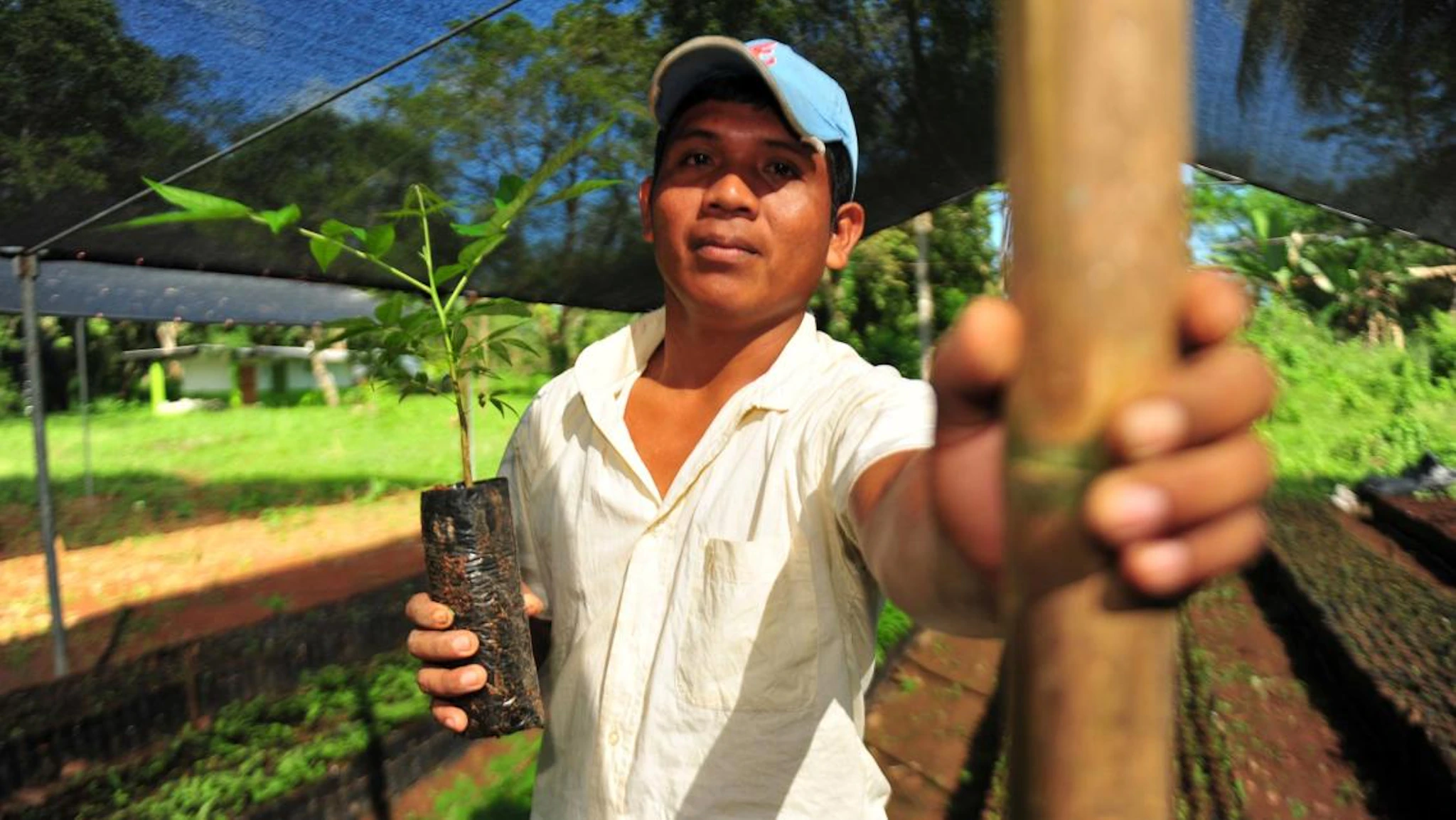Andreas Kratz, Director of Standards and Pricing at Fairtrade International, introduces the new Fairtrade Climate Standard, a collaboration bringing together the expertise of the Gold Standard and Fairtrade International in their respective fields.

Climate change is having an enormous impact on millions of smallholder farmers around the globe, including the 1.5 million Fairtrade producers in developing countries. Extremes of temperature and rainfall combined with a sharp increase in pests and diseases not only make planning when to sow and harvest difficult, it puts their very livelihoods at risk. Farmers are telling us that they quickly need more support to get the skills and finance they need to adapt to the changing climate, while also doing their part to reduce their own emissions.
As one member of a Fairtrade coffee cooperative in Nicaragua, Bayardo Bentanco put it:
“There is a chain on Earth that starts at the bottom where the producers are. They are the ones who suffer the consequences of climate change, the ones who get the least help, and carry all of the burden. It’s not fair.”
Building a fairer carbon market for all
Is the carbon market part of the solution for cooperatives like Bayardo’s and other farming communities? We believe it can be – and that bringing Fair Trade principles to the voluntary carbon market can be a win-win for farmers, project developers and businesses alike.
Over the past two years we’ve been consulting on how a Standard for Fairtrade Carbon Credits could support Fairtrade certified producers, and other farming and rural communities, to mitigate and adapt to the effects of climate change. Our consultations included farmers and communities involved in carbon projects as well as civil society representatives, businesses and experts in the carbon field.
Early on we realised the value of working with a recognized partner in the carbon world, to build on existing good work and not duplicate efforts. That’s why we are so pleased to partner with Gold Standard, as the most widely respected and experienced organization working in climate security and sustainable development.
Using the Gold Standard as the base certification, we identified the following key ways that by developing an add-on Fairtrade Climate Standard, we could together innovate for change in the carbon market:
Minimum Prices that cover the true costs of projects
Looking at the voluntary carbon market, with its slumping prices, the struggles for project developers to cover their costs and the lack of transparency in pricing, we saw how relevant Fairtrade’s price mechanism could be.
For Fairtrade products such as coffee, bananas or cocoa, we set a minimum price which aims to cover the costs of sustainable production. In addition, producers receive a Fairtrade Premium, to invest in business development or community projects of their choice. This security enables farmers and workers to take control of their futures, despite the fluctuations in markets.
We set about looking at how these same price principles could be applied to the carbon market. By evaluating all the costs involved plus an extra to ensure revenue is driven back to the communities implementing the carbon project, we have set up a robust methodology for Minimum Prices and Premiums for three different types of project: forestry, renewable energy and energy efficiency. This leads to long term security in climate projects, for the communities and for the project developers’ who invest in them.
Bringing together mitigation and adaptation
Our consultations made it clear that the Standard had to focus on adaptation as well as mitigation. We realised the unique role the Fairtrade Premium could play here. This extra sum of money, paid on top of the Fairtrade Minimum Price, will allow the communities generating carbon credits to adapt and become more sustainable communities at the forefront of climate change.
Focus on rural communities
Given the current carbon market crisis where carbon prices have fallen so low, carbon projects targeting rural communities run the risk of no longer taking place as they struggle to be financially viable. In addition, the complexities of setting up a project and all the expertise needed also make the carbon market more inaccessible for these communities.
One of our key aims with the Fairtrade Climate Standard is to make sure small farming and vulnerable communities are able to get involved in and benefit from the carbon market: the very ones who most need climate change finance and support.
The Fairtrade Climate Standard ensures that the communities will own the projects themselves. Over time and with the support of the project developer, skills and knowledge will be increasingly transferred to the communities, empowering them to tackle climate change and become more resilient.
Attractive and credible for businesses
The Standard ensures that credible reductions take place in both North and South. Businesses buying Fairtrade Carbon Credits will be required to take measures to reduce their carbon emissions, and then take accountability for what’s remaining by purchasing Fairtrade Carbon Credits.
The Fairtrade Climate Standard will offer companies and organizations a credible approach to take positive climate action, and to communicate this via their corporate communications in a powerful way.
Businesses will be able to get transparent insights into the impact their commitment is having. A comprehensive monitoring and evaluation system will also ensure we are delivering the desired impact for rural communities.
So what’s next?
We have currently selected seven projects to road test the standard, with more to be added soon. They include tree planting by coffee farmers in Peru to tackle soil erosion and deforestation, cookstoves for women in coffee growing communities in Ethiopia and biogas units for rural communities in India.
The Fairtrade Climate Standard will be published 1st October 2015, followed by a public launch of the scheme in Paris in December. Now we are looking forward to partnering with rural communities, project developers and businesses to turn this vision of more climate change support for farmers and a fairer carbon market into reality.
